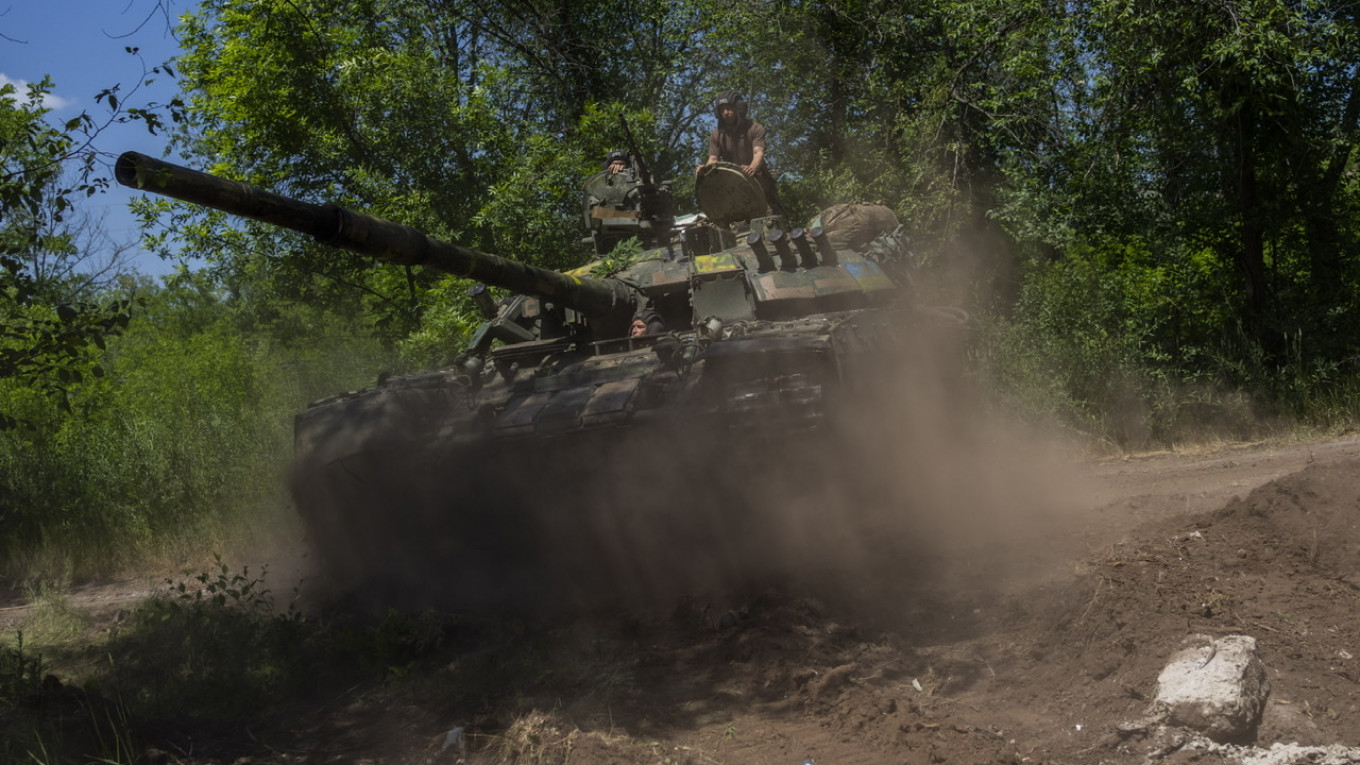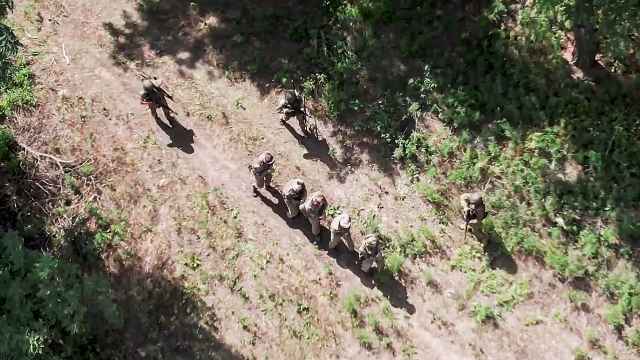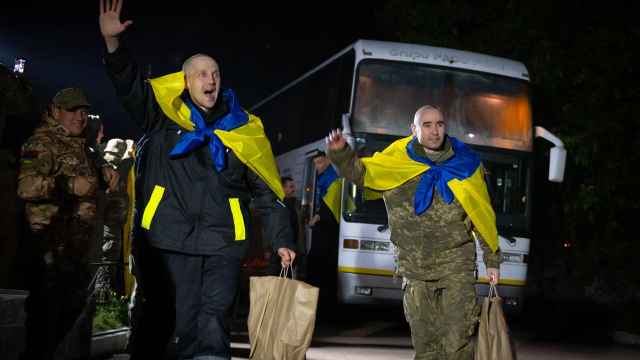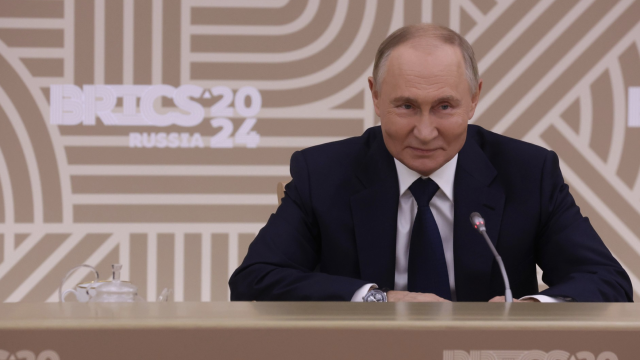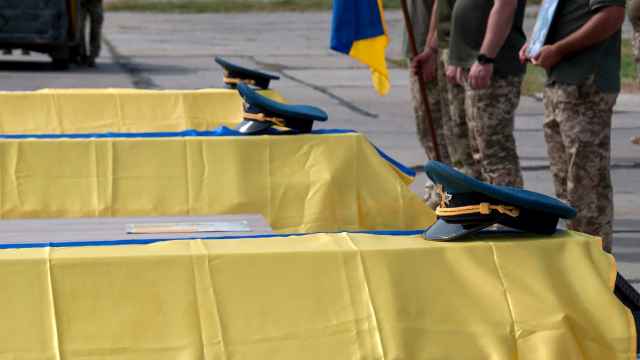Russian forces are now largely in control of the key eastern Ukrainian city of Severodonetsk amid fierce fighting, Kyiv said Wednesday, as UN chief Antonio Guterres starkly warned the war's impact on the world was worsening.
The strategic city has become the focus of Russia's offensive as it seeks to seize an eastern swathe of Ukraine, after being repelled from other parts of the country.
"Severodonetsk remains the epicenter of fighting in the Donbas," said Ukrainian President Volodymyr Zelensky, referring to the region in eastern Ukraine that includes the provinces of Luhansk and Donetsk.
"It is a very fierce battle, very difficult, probably one of the hardest in the course of this war," Zelensky said in his evening address to the nation.
Sergiy Gaiday, governor of Luhansk, which includes Severodonetsk, conceded that Ukraine's forces might have to pull back as Russian troops were shelling the city "24 hours a day."
Later in the day, he said on Telegram that Moscow's forces control "a large part" of the city — but that its industrial areas were still held by Kyiv.
"The fighting is only going on in the streets inside the city," he added.
Russia's offensive is now targeting the Donbas, after its forces were pushed back from Kyiv and other areas following the Feb. 24 invasion.
The cities of Severodonetsk and Lysychansk, which are separated by a river, were the last areas still under Ukrainian control in Luhansk.
Lysychansk remains fully under the control of the Ukrainian army but is under "powerful and chaotic" shelling, Gaiday said, accusing Russian forces of deliberately targeting hospitals and humanitarian aid distribution centers.
"The destruction is enormous," he added.
'Systemic, severe, and speeding up'
Guterres warned Wednesday that 1.6 billion people were likely to be affected as the consequences of Russia's invasion of Ukraine worsened.
"The war's impact on food security, energy and finance is systemic, severe, and speeding up," the UN secretary-general said.
He added that "for people around the world, the war is threatening to unleash an unprecedented wave of hunger and destitution, leaving social and economic chaos in its wake."
As concerns mounted over grain trapped at Ukrainian ports, Russian Foreign Minister Sergei Lavrov said Moscow was ready to ensure the safe passage of ships from Ukraine.
"We are ready to do this in cooperation with our Turkish colleagues," Lavrov told reporters in Ankara amid warnings of shortages worldwide partly blamed on the Russian invasion.
At the request of the United Nations, Turkey has offered its services to escort maritime convoys from Ukrainian ports, despite the presence of mines — some of which have been detected near the Turkish coast.
Kyiv said it would not demine waters around the Black Sea port of Odessa to allow grain exports, citing the threat of Russian attacks on the city.
Lavrov's Turkish counterpart Mevlut Cavusoglu called Russian demands for an end to sanctions to help grain onto the world market "legitimate."
"If we need to open up the international market to Ukrainian grain, we see the removal of obstacles standing in the way of Russia's exports as a legitimate demand," he said.
Kyiv, which was not represented at the Ankara talks, pushed back against claims that Western sanctions on Moscow had sent prices soaring.
"We have been actively communicating, the president and myself, about the true cause of this crisis: it is Russian aggression, not sanctions," Ukraine's Foreign Minister Dmytro Kuleba said.
'Millions' could die
Moscow's war against its pro-Western neighbor has not only devastated crops and farming, but also disrupted crucial deliveries from Ukraine — one of the world's main grain producers.
Both sides accuse one another of destroying agricultural areas, which could worsen global food shortages.
As he hosted Mediterranean ministers for talks on the global food crisis, Italian Foreign Minister Luigi Di Maio warned "millions" could die unless Russia unblocked Ukraine's ports.
But Kremlin spokesman Dmitry Peskov rejected suggestions that grain stuck in Ukrainian ports was fueling the problem.
"As far as we know, there is much less grain than the Ukrainians say. There is no need to exaggerate the importance of these grain reserves," he told reporters.
The war's economic impact continued to reverberate, with the World Bank cutting its global growth estimate to 2.9% — 1.2 percentage points below the January forecast — due largely to the invasion.
'Bombings every day'
Severodonetsk appeared close to being captured just days ago but Ukrainian forces launched counterattacks and managed to hold out, despite warnings they were outnumbered by superior forces.
Lanny Davis, a U.S. lawyer for Ukrainian tycoon Dmytro Firtash, said 800 civilians had taken refuge in the bunkers inside his huge Azot chemical plant in the city.
The situation was also increasingly desperate in Lysychansk.
"Every day there are bombings and every day something burns. A house, a flat... And there is nobody to help me," 70-year-old Yuriy Krasnikov told AFP.
"I tried to go to the city authorities, but nobody's there, everyone has run away."
Ivan Sosnin was among those residents who decided to stay despite the war.
"This is our home, that's all we know. We grew up here, where else should we go?" said the 19-year-old.
A Message from The Moscow Times:
Dear readers,
We are facing unprecedented challenges. Russia's Prosecutor General's Office has designated The Moscow Times as an "undesirable" organization, criminalizing our work and putting our staff at risk of prosecution. This follows our earlier unjust labeling as a "foreign agent."
These actions are direct attempts to silence independent journalism in Russia. The authorities claim our work "discredits the decisions of the Russian leadership." We see things differently: we strive to provide accurate, unbiased reporting on Russia.
We, the journalists of The Moscow Times, refuse to be silenced. But to continue our work, we need your help.
Your support, no matter how small, makes a world of difference. If you can, please support us monthly starting from just $2. It's quick to set up, and every contribution makes a significant impact.
By supporting The Moscow Times, you're defending open, independent journalism in the face of repression. Thank you for standing with us.
Remind me later.


